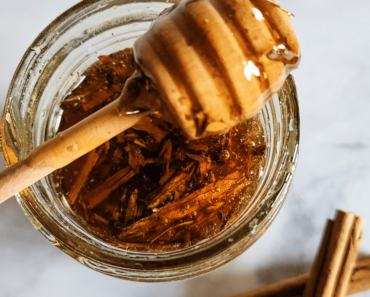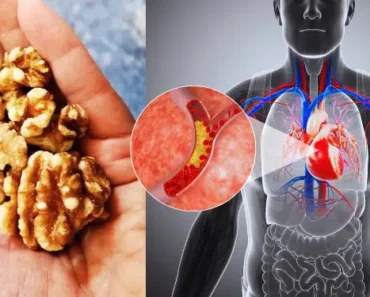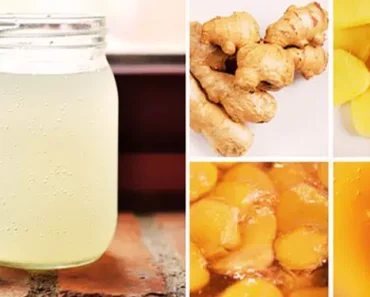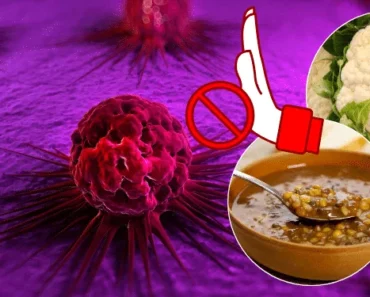Your liver is one of the hardest-working organs in your body – responsible for filtering toxins, processing nutrients, balancing hormones, and supporting metabolism.
But with daily exposure to pollutants, processed foods, alcohol, and stress, your liver can easily become overburdened.
The good news is that nature provides a wealth of foods that help cleanse, regenerate, and protect the liver – helping it flush out toxins more effectively and restore overall vitality.
Why Liver Cleansing Is So Important
Your liver performs more than 500 functions every single day, including:
- Filtering toxins from the blood.
- Breaking down fats and processing cholesterol.
- Converting food into energy.
- Balancing hormones and supporting immune function.
- Storing essential nutrients like iron and vitamin A.
When the liver becomes sluggish – due to a poor diet, alcohol, medications, or stress – symptoms like fatigue, bloating, brain fog, and skin problems can appear.
Over time, toxin buildup may contribute to more serious conditions like fatty liver disease, insulin resistance, or chronic inflammation.
1. Garlic
Garlic is one of the most potent natural liver cleansers. It contains allicin and selenium, two powerful compounds that activate liver enzymes responsible for flushing toxins.
Garlic also helps reduce liver fat and cholesterol buildup, supporting healthier blood flow and metabolism.
Just one or two raw cloves daily – added to salad dressings or soups – can make a significant difference over time.
Tip: Crush garlic and let it sit for 10 minutes before cooking to release more allicin.
2. Turmeric
Often called “nature’s golden healer,” turmeric is one of the best herbs for liver protection. Its active compound curcumin reduces inflammation, supports bile production, and helps repair damaged liver cells.
Curcumin also boosts antioxidant enzymes like glutathione, which neutralizes free radicals and toxins before they can harm liver tissue.
Best way to use: Mix turmeric with a pinch of black pepper and healthy fat (like coconut oil or olive oil) to improve absorption.
3. Leafy Greens
Leafy greens like spinach, kale, arugula, and dandelion greens are loaded with chlorophyll – a natural compound that binds to heavy metals and neutralizes toxins in the blood.
They also stimulate bile production, which is essential for breaking down fats and carrying waste out of the body.
Dandelion greens, in particular, are known for their gentle diuretic effect that supports liver and kidney detox.
Try this: Add a handful of mixed greens to your morning smoothie or sauté them lightly with garlic and olive oil.
4. Beets
Beets are a true superfood for liver health. Their deep red color comes from betalains, antioxidant pigments that reduce inflammation and stimulate detoxification enzymes.
They also help thin bile and improve fat metabolism, preventing fatty liver buildup. Drinking fresh beet juice or eating roasted beets a few times a week can help your liver perform more efficiently.
Bonus: Beetroot also improves blood circulation, ensuring that nutrients reach the liver faster.
5. Lemons
Lemons are a simple yet powerful liver tonic. Their high vitamin C content helps your body produce glutathione, the key molecule for detoxification.
A warm glass of lemon water in the morning supports hydration, activates digestive enzymes, and helps the liver flush out waste accumulated overnight.
Pro tip: Add lemon zest to dishes – it contains limonene, a compound known to activate detox enzymes in the liver.
6. Ginger
Ginger’s warming, anti-inflammatory properties support better digestion and help stimulate bile production. It also reduces oxidative stress in the liver and improves insulin sensitivity.
Fresh ginger tea or grated ginger in meals can help your body naturally detoxify while also soothing the stomach and supporting circulation.
7. Green Tea
Green tea is rich in catechins, a type of antioxidant that protects liver cells from damage and improves fat metabolism.
Studies show that drinking 2–3 cups of green tea daily can reduce markers of liver inflammation and fat accumulation, especially in people with non-alcoholic fatty liver disease.
Tip: Avoid adding sugar; instead, flavor with lemon or mint for a refreshing detox drink.
8. Grapefruit
This tangy fruit is full of antioxidants – especially naringenin and naringin – that help reduce inflammation and protect liver cells.
Grapefruit also enhances the liver’s ability to break down and eliminate toxins. Regular consumption can reduce fat storage in the liver and promote more balanced blood sugar levels.
Caution: Grapefruit can interact with certain medications, so consult your doctor if you’re taking prescription drugs.
9. Avocados
Avocados are rich in healthy fats, particularly monounsaturated fats, that reduce inflammation and support cell regeneration.
They’re also high in glutathione, the liver’s master antioxidant. Eating just half an avocado a few times a week can help repair liver damage caused by oxidative stress and support healthy bile flow.
10. Apples
“An apple a day” may truly help keep your liver in shape. Apples are high in pectin, a natural fiber that binds to toxins and cholesterol in the digestive tract before they reach the liver.
They also contain malic acid, which helps dissolve gallstones and improve bile production. Green apples, in particular, are especially cleansing.
11. Carrots
Carrots are packed with beta-carotene, which the liver converts into vitamin A – a nutrient crucial for detoxification.
They also help cleanse the blood and stimulate healthy bile flow. Drink fresh carrot juice or add grated carrots to salads for a simple, daily liver boost.
12. Broccoli
Cruciferous vegetables like broccoli, cauliflower, and Brussels sprouts contain sulfur-rich compounds called glucosinolates, which activate the liver’s detox pathways.
Broccoli, in particular, increases levels of detox enzymes that break down harmful substances and flush them out through the urine.
Cooking tip: Lightly steam broccoli to preserve its enzyme-activating properties.
13. Walnuts
Walnuts contain omega-3 fatty acids and arginine, both of which help the liver eliminate ammonia, a toxic byproduct of protein metabolism.
They also support better circulation and reduce inflammation, improving liver function overall. Eat a small handful of raw walnuts daily as a healthy snack or salad topping.
14. Olive Oil
Cold-pressed olive oil acts as a natural lubricant for the liver, reducing toxin load and improving bile flow.
Its polyphenols and healthy fats protect against oxidative stress and inflammation. Use extra-virgin olive oil as your main cooking oil or drizzle over salads and steamed vegetables.
15. Cabbage
Cabbage supports both phases of liver detoxification – neutralizing toxins and converting them into forms that can be safely excreted.
It also contains indole-3-carbinol, a compound that helps balance estrogen metabolism and may reduce the risk of liver-related hormonal imbalances.
Try fermented cabbage (sauerkraut or kimchi) for an added probiotic boost that supports gut-liver connection.
16. Berries
Berries – especially blueberries, blackberries, and cranberries – are packed with anthocyanins, powerful antioxidants that protect liver tissue from damage.
They also help reduce fat accumulation and inflammation while improving insulin response. A handful of fresh or frozen berries daily is a delicious way to nourish your liver.
17. Dandelion Root
Dandelion root is one of nature’s oldest liver tonics. It acts as a mild diuretic, helping to flush toxins through the kidneys while stimulating bile flow for better digestion.
Drinking dandelion root tea a few times per week can help cleanse the liver gently without harsh detox reactions.
18. Flaxseeds
Flaxseeds are rich in lignans and fiber, which bind to excess hormones and toxins in the gut, preventing them from being reabsorbed into the bloodstream.
They also support better fat metabolism and reduce liver inflammation. For best results, use freshly ground flaxseeds in smoothies, oatmeal, or yogurt.
19. Onions
Onions share many of garlic’s detoxifying benefits. They contain sulfur compounds and quercetin, both of which support the liver’s enzyme activity and fight free radicals.
Adding onions to your daily meals enhances overall liver resilience and aids the breakdown of fat-soluble toxins.
20. Water
No liver detox is complete without proper hydration. Water is the body’s primary detox tool – helping the liver transport waste products out of the body via urine and sweat.
Drink at least 8–10 glasses per day, and increase intake if you’re sweating more, exercising, or consuming caffeine. Add slices of lemon or cucumber for extra cleansing support.
Simple Tips for Supporting Daily Liver Detox
Cleansing your liver isn’t about extreme fasting or complicated regimens – it’s about consistency and balance.
Here are simple habits to support long-term liver health:
- Limit alcohol and processed foods. – These place heavy stress on the liver’s detox pathways.
- Eat fiber daily. – Helps eliminate toxins through the digestive tract.
- Exercise regularly. – Physical movement enhances circulation and helps the liver process fats efficiently.
- Sleep well. – Liver repair peaks during deep sleep – aim for 7–8 hours nightly.
- Stay hydrated. – Water keeps everything moving through your system.
- Use herbs wisely. – Milk thistle, turmeric, and dandelion root are safe, natural supports for liver function.
- Avoid overload. – A balanced diet is far more effective than sudden “detox” extremes.
Signs Your Liver May Need a Detox Boost
If your liver is sluggish, your body often gives subtle warning signs. Look for:
- Constant fatigue or low energy.
- Bloating or indigestion.
- Skin breakouts or dull complexion.
- Unexplained weight gain.
- Brain fog or mood swings.
- Yellowish eyes or skin tone.
Incorporating more liver-friendly foods into your meals can help restore balance before these signs escalate into more serious issues.
Your liver is the body’s natural detox powerhouse – but it needs the right fuel to work efficiently.






